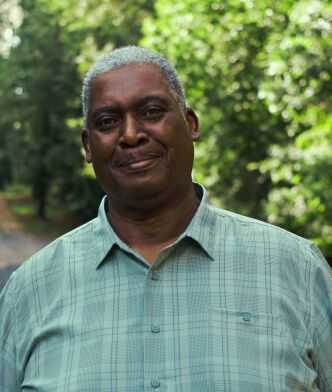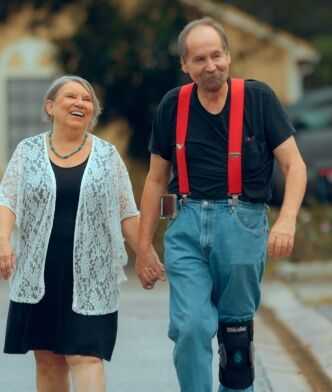What Is Proof of Negligence?
What Is Proof of Negligence?
- The Fee Is Free Unless You Win®.
- America's Largest Injury Law Firm™
- Protecting Families Since 1988
- 20 Billion+ Won
- 1,000+ Lawyers Nationwide
Free Case Evaluation
Porter Ranch Gas Leak
Jacob T. Rodgers v. City of Gainesville D/B/A Gainesville Regional Utilities
Estate of Frank Townsend v. RJ Reynolds, et al.
Morgan Stanley Data Security Litigation
Stephen Davis v. Levon Clark, Ricardo Williams, Marty Grifka and Derek Pak
McAdams v. Monier Lifetile, LLC
Coleman v. Martinez
Gold v. Lumber Liquidators
Clemmons, Patrick
Brink v. Ruiz

The attorneys featured above are licensed in Florida. For a full list of attorneys in your state please visit our attorney page.
What Is Proof of Negligence?
When you file a personal injury lawsuit, you'll need to illustrate that another party is responsible for your injuries. This all rests on a legal theory known as negligence. Negligence holds that various people owe a duty of care to other individuals and that in breaching this duty of care can be held legally responsible for property damage and injuries resulting from that breach.
Even though a victim already has plenty of things to think about after being seriously hurt, they may also need to gather and prepare to present evidence showing how someone else was negligent and caused the accident. For many overwhelmed victims with catastrophic injuries, this is a job for a personal injury lawyer.
What is proof of negligence? Since every case is unique, the answer isn’t simple, but Morgan & Morgan, the country’s largest personal injury law firm, can help. Contact us today for a free, no-obligation case evaluation to learn more about proof of negligence.
Get answers to commonly asked questions about our legal services and learn how we may assist you with your case.
Morgan & Morgan
In What Kinds of Cases Do I Need to Prove Negligence?
Proving negligence shows up in the context of many personal injury and premises liability cases, including slip and fall accidents, dog bite accidents, vehicle accidents, and medical malpractice.
Certain cases do not always require proving negligence, such as if you are hurt on the job and need to file a worker's compensation lawsuit. In that situation, it simply matters whether you were at work and carrying out duties associated with your traditional work responsibilities. In that case, negligence may only become important in the event that you have to file a third-party lawsuit against someone else who holds some other level of responsibility for your case.
What Must the Victim Show in a Negligence Lawsuit?
There are four primary elements that must be established in a personal injury or premises liability claim in order to be successful in recovering compensation for negligence. If you're arguing that the wrongdoer was negligent and at fault for the injuries you sustained, you must show that the person who allegedly did wrong owed a duty of care to the victim, that the wrongdoer breached their duty of care, that this breach caused an injury, and that the victim suffered damages as a result. You must establish all four of the above-mentioned elements for proving negligence cases in most claims around the United States.
If you are unable to show these different elements, the court will likely find that you are not owed compensation from any other party.
What Is Duty?
The legal concept of duty refers to someone's legal responsibility to not do or to do something. For example, drivers within states have a legal duty to follow the rules of the road. If you can show that another driver did not follow the rules of the road because they were driving distracted, under the influence of alcohol, or recklessly, this could help to bolster your negligence claim.
What Does It Mean to Say Damages Come up in the Context of a Negligence Claim?
When making a claim for negligence against someone else, you must show that you sustained an injury because of the other party's actions or lack of actions and that the injuries you sustained from that caused you damages. You must have actually suffered damages, and there are three different types of damages that may be available to you based on the state that you live in.
The first is for special damages, which is the easiest to calculate because it determines actual money you have already lost and will lose in the future. This includes lost wages, medical bills, and funeral costs if you're filing a wrongful death lawsuit on behalf of a loved one.
General damages are another kind of damages. These refer to non-economic losses such as emotional distress, pain and suffering, disfigurement, or the loss of companionship of a loved one.
Finally, depending on your individual location and the specifics of your injury claim, you may pursue punitive damages. These are designed to punish somebody who was extremely reckless or engaged in willful misconduct.
Do I Really Need an Injury Lawyer?
After you have been hurt, it is strongly recommended that you consult with an injury lawyer as soon as possible. It can be difficult to gather the evidence to show negligence on your own, and there is a lot at stake when you need to prove fault or show negligence in a case. Making a mistake could compromise your ability to recover maximum compensation, so you need to be prepared to take action quickly.
Furthermore, each state has specific rules known as the statute of limitations that set a maximum window for when you can file a lawsuit against someone else. Even if you have met all four grounds of negligence, you may not be able to pursue a lawsuit if your claim exceeds the existing statute of limitation.
A lawyer is instrumental in helping to gather all of this information and to present it in a manner that will make sense to the court. There is so much at stake when you are in the midst of a negligence claim that you cannot afford to make mistakes. Finding the right proof in a negligence case is not always easy because you may not remember the specifics of the accident or have been able to collect them at the scene. This is when you need to turn this over to a qualified personal injury lawyer who can review every aspect of your claim and determine what other pieces of evidence or proof may be necessary.
What if I Don't Know Who Is Responsible?
For many people who are seriously injured in an accident, it is common to be unsure of what led to the wreck itself or who may be held accountable. There can often be complicating factors that mean that more than one party is responsible, or that an accident reconstruction or further investigation is required in order to tell what occurred and to build a comprehensive theory of negligence.
Thankfully, when you're working directly with a qualified personal injury lawyer, it is much easier to tell what you need to pay attention to and to allow your attorney to gather this evidence on your behalf.
If the person who hit you in an accident, such as a bike accident, pedestrian accident, truck accident, motorcycle accident, or other vehicle accident, struck you and then left the scene, there may separately be a criminal as well as a civil case against this party.
The sooner you can communicate with the police and talk to your personal injury lawyer, the easier it may be to identify the person who hit you in the accident. It is possible that someone else near the scene of the accident saw what happened and grabbed important information about the person, such as their vehicle type or their license plate. The police will also be involved in investigating who may have caused the accident, and this can help you to identify a liable party in your civil lawsuit. A criminal case and a civil case over a hit-and-run accident, however, are handled separately in the court system.
If you cannot identify who caused the accident, you may need to turn to your own insurance coverage to help pay for your damages. It is often helpful to work with a qualified personal injury attorney who has carried out investigations and hit-and-run accidents before, since this individual may have some ideas of how to identify who hit you and how to hold them responsible in court. You may still need some of this information, such as any evidence pinning this person to the accident, to prove negligence in your civil claim.
What Is the Reasonable Person Standard?
One of the most important components of a negligence claim is the reasonable person standard. This considers what a reasonable person would do in this situation and is the core question that every negligence claim must answer. Whether or not the defendant acted as a reasonable person would have in a similar circumstance may be the deciding factor of a case. For example, in a medical malpractice claim, you would allege that a doctor or other healthcare professional failed to take appropriate action to handle the situation in the same way that another medical professional would.
Morgan & Morgan Can Help
Now that we’ve addressed the question, “What is proof of negligence?”—it’s time to determine how to do so for your own claim. There are many different components to a negligence claim, but the more prepared you are to file a claim and the sooner you contact a personal injury lawyer, like those working at Morgan & Morgan, the easier it will be for you to begin preparing a strong case.
To get started, contact Morgan & Morgan now for a free, no-obligation case evaluation.
How it works
It's easy to get started.
The Fee Is Free Unless You Win®.
Results may vary depending on your particular facts and legal circumstances.
Step 1
Submit
your claimWith a free case evaluation, submitting your case is easy with Morgan & Morgan.
Step 2
We take
actionOur dedicated team gets to work investigating your claim.
Step 3
We fight
for youIf we take on the case, our team fights to get you the results you deserve.






